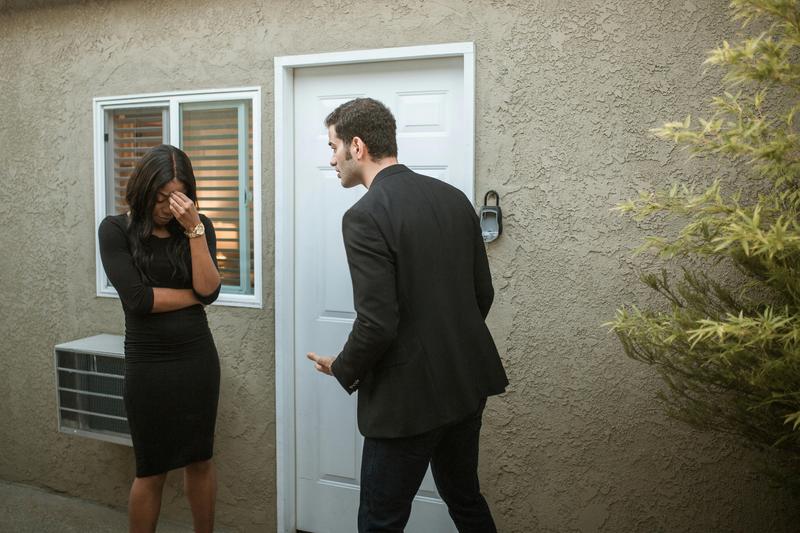Think You Don’t Have Needs in Relationships? Think Again

Here’s the paradox. The people who insist they don’t have needs in relationship—are usually the ones driven by them the most. Because when you deny a need, it doesn’t disappear… it trains your system to expect distance—and over time, even the closest moments stop feeling close.
Today I want to talk about something most people try to avoid, minimize, or even deny. Needs. Because every single one of us has them in relationship. And the way we perceive those needs—how we respond to them—determines the emotional states we’re practicing over and over.
The Illusion of “No Needs”
Here’s the thing. A lot of people walk around saying, “I don’t need anything from anyone. I’m good on my own.” Sounds strong on the surface. Independent. But what’s really being trained there? That outlook—that you shouldn’t have needs—usually comes with an emotional state of guardedness. And when guardedness is practiced enough, it becomes the default inner state.
Someone I once worked with told me flat out: “I don’t need my partner to make me happy.” And technically, that was true. Happiness is trained internally. But the unspoken belief behind their words was: “If I admit I have needs, I’ll look weak. I’ll lose control.” That outlook wasn’t training happiness. It was training distance. So here’s the first shift: Having needs doesn’t make you weak. Pretending you don’t have them trains isolation.
What Needs Actually Are
Let’s break this down. A “need” in relationship isn’t about control. It’s not, “You have to do X or I’ll fall apart.” A need is recognition that certain dynamics help your nervous system align, stabilize, and thrive. Think about it this way: Your body needs oxygen. That doesn’t mean you’re weak for breathing. It means you’re alive. Relational needs work the same way.
You might need respect in how you’re spoken to. You might need honesty to trust. You might need physical touch, or consistent follow-through. These aren’t flaws. They’re signals. Now here’s where training comes in: When you deny those needs, the emotional state being reinforced is self-neglect. When you own them clearly—without demand—you’re training alignment.
The Cycle of Unspoken Needs
Most conflict in relationship doesn’t come from the need itself. It comes from how people avoid owning it. Take this common pattern: Someone feels unseen. They don’t say anything. Instead, they start pulling back, building resentment. Eventually they snap. And the partner’s left blindsided, thinking: “Where did this come from?”
What’s actually happening? They saw the situation through the lens of: “If I voice my need, I’ll be rejected or dismissed.” That outlook stirred up fear and defensiveness. Those feelings triggered thoughts like: “Why even bother? They’ll never get it.” And the action that followed? Withdrawal, disconnection, or explosive reaction. That’s the sequence most people repeat without realizing it. So the cycle of unmet needs isn’t random. It’s the direct result of what’s being trained internally.
The Difference Between Stating Needs and Demanding Them
This is where people get tripped up. They confuse owning a need with manipulating someone into meeting it. Here’s the distinction.
Stating a need: “I value consistency. When we make plans, it matters to me that we follow through.”
Demanding a need: “You always cancel. If you cared, you wouldn’t do this. You need to change.”
See the difference? One is about clarity. The other is about control. When you state a need clearly, you’re training respect—for yourself and the relationship. When you demand, you’re training tension, defensiveness, and power struggle. So here’s the reframe: Clarity is powerful. Control is destructive.

Why Needs Are Non-Negotiable
Sometimes people say, “I’ll just work on myself so I don’t need anything.” And that sounds noble. But it’s impossible. Because here’s what the nervous system does: It adapts to patterns of safety and connection. When those needs aren’t acknowledged, your system doesn’t stop needing. It just trains around lack.
I’ll give you an example. Someone avoids stating their need for affection. Instead of asking, they convince themselves it doesn’t matter. Over time, their nervous system normalizes distance. And now their baseline emotional state in relationship is dullness, flatness, or disconnection. They didn’t eliminate the need. They just trained themselves to expect less. The truth is: your system will always adapt. The only question is—what are you training it to adapt to?
Needs as a Path to Growth
Here’s the part people often miss. Needs aren’t just about comfort. They’re about growth. When you voice a need with clarity, you’re not just asking the other person to step up. You’re training your own nervous system to operate in alignment with respect, worth, and courage.
Think about it. It takes courage to say, “This matters to me.” It takes respect to say it without control. It takes commitment to stay steady, even if the other person doesn’t respond the way you’d like. So every time you own a need clearly, you’re not just shaping the relationship. You’re shaping yourself.

The Hidden Cost of Pretending
Let’s talk about the cost of denying needs. When you pretend you don’t have them, you train suppression. Suppression trains tension. And tension leaks into every interaction. Maybe you notice it in small ways: Irritation in your tone. Passive-aggressive comments. Feeling heavy around your partner, even when nothing’s “wrong.” That’s not random. That’s the nervous system reinforcing the state of frustration or distance. Over and over.
So the question isn’t whether you have needs. The question is whether you’ll train alignment—or train disconnection—around those needs.
The Fear Behind Denying Needs
Why do people resist this so hard? Because the moment you admit you have needs, you risk disappointment. The belief is: “If I don’t need, I can’t be let down.” But what emotional state does that belief train? Fear. And fear, practiced enough, hardens into isolation.
One client once told me, “I’d rather stay alone than risk needing someone and not getting it.” And the result? They weren’t avoiding pain. They were training loneliness. So here’s the deeper truth: The cost of denying needs is always higher than the risk of voicing them.
Reframing Needs as Training Grounds
Think about needs not as vulnerabilities but as training opportunities. Each time you own one clearly, you’re practicing states like: - Respect - Courage - Alignment - Stability. And each time you avoid them, you’re practicing states like: - Fear - Guardedness - Frustration - Resentment. So the choice isn’t about whether to have needs. It’s about which states you want to train around them.
How to Start Shifting
Let’s keep this simple. Step one: Notice the outlook. Ask: “What story am I running right now about my needs?” Step two: Track what that story stirs up. Guardedness? Fear? Distance? Step three: Redirect to the state you want to train instead. Respect. Courage. Stability. And then speak the need from that state. Not as a demand. Not as a manipulation. But as clarity. This isn’t about perfection. It’s about practice.
So here’s my question for you: What emotional state are you practicing—over and over—without even realizing it—when it comes to your needs in relationship? Because that state… that’s what your nervous system is learning every single day.
What Healthy Relationship Training Looks Like
In a strong relationship, both people are owning needs clearly. Not from demand. Not from blame. But from alignment. “I need respect in how we disagree.” “I need honesty, even when it’s uncomfortable.” “I need affection, not once in a while, but consistently.”
When spoken from clarity, these statements don’t trap anyone. They free the relationship to train states of respect, trust, and vitality. And over time, the relationship itself becomes a practice ground. Not a place of avoidance. Not a place of fear. But a place where both nervous systems grow stronger, steadier, and more resilient.
If you’re ready to stop managing symptoms and start training a steady, resilient inner state, I’ve built a system for that. It integrates perception, emotion, and nervous system—so you don’t just understand your patterns… you actually shift them.
I also share practices weekly on Instagram—@mikewangcoaching. And if you want more depth, you can join the newsletter here.
Thanks for being here. Remember: everyone has needs in relationship. The only question is—what state are you training in how you own them? I’ll see you in the next video.
